Gender Responsive Standards
ITU, UNECE, ISO, IEC and Canada
Session 476
Why a Gender Lens in ICT Standardization Matters
Standards Development has traditionally been dominated by men and standards typically produced to be “gender neutral” or “unisex.” However, research shows that similar to other fields, biases exist in standardization that often view men as typical or representative of all society, erroneously leading to standards intended for everyone being, in fact, standards designed for men. The lack of gender-responsiveness in standardization can have negative consequences for women and girls, which are exacerbated by a low participation of women in the standards development process especially in leading roles.
In May 2019, International Telecommunication Union (ITU), along with other major Standards Development Organizations and UN agencies, endorsed the UNECE Declaration on Gender- Responsive Standards, committing to ensuring that the standards development processes in ITU are gender- inclusive, and the standards developed are gender-responsive.
The session will focus on raising awareness on the topic with concrete example of ICTs related products and services and discuss how to incorporate a gender lens in the process of standards development and help ensure that the standards developed are gender responsive. The session will also discuss lessons learned as well as future developments.
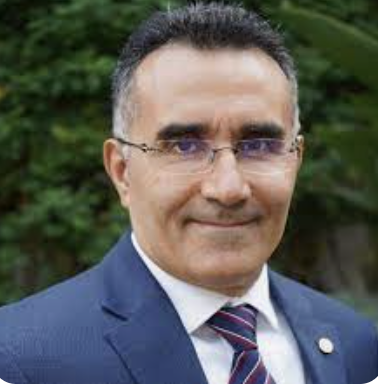
A distinguished engineer, leader, and diplomat; multilingual standardization expert and holder of 22 patents, Tunisian born Dr. Bilel Jamoussi has been Chief of the Study Groups Department of ITU Standardization Bureau (TSB) in Geneva Switzerland since 2010.
Prior to 2010, he worked in the private sector for 15 years and held senior executive positions such as Director of Standards for Nortel. In this role he participated in over 90 standards making bodies worldwide. In the Internet Engineering Task Force (IETF), he authored a number of Internet standards. As an IEEE Senior Member, he was elected to the IEEE Standards Association (IEEE-SA) Board of Governors and the IEEE-SA Corporate Advisory Group. He holds a BSc, MSc and PhD degrees in Computer Engineering from the Pennsylvania State University, USA.
Bilel has lived in Tunisia, Canada, USA, and Switzerland, giving him a unique global viewpoint. He is fluent in Arabic, French, and English and speaks some Spanish and German.
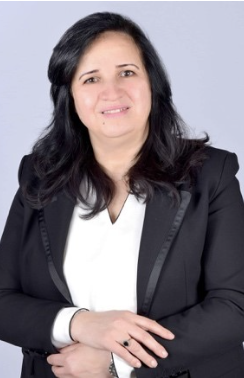
As an engineer, Dr. Rim Belhassine-Cherif joined Tunisie Télécom, the telecom operator in Tunisia in Tunisia in 1994 where she currently serves as the Chief Innovation and Strategy Officer and responsible of the digital transformation department. Dr. Belhassine-Cherif has participated in several ITU conferences, seminars and workshops and is currently the Chairman of the Network of Women in ITU-T, the initiative for gender equality and empowerment of women in ITU-T activities . She has also been serving as a Vice-chair of ITU-T Study Group 13 since 2013, Vice-chair of WP3/13 and Vocabulary Rapporteur for the ITU Standardization Committee for Vocabulary and Chairman of the SG13 Regional Group for Africa. Previously, Dr. Belhassine-Cherif served as Vice-Chairman of the ITU Telecommunication Standardization Advisory Group (TSAG) and Co-Rapporteur on Standardization Strategy from 2017 to 2022, and Vice-Chairman of the ITU-T Focus Group on Bridging the Gap: from Innovation to Standards from 2013 to 2015. Dr. Belhassine-Cherif graduated from the Higher School of Posts and Telecommunications of Tunis in 1994. She obtained her Ph.D. from the National Engineering School of Tunis in 2002; In 2010 she obtained an Executive MBA from Paris-Dauphine University and University of Paris 1 Panthéon-Sorbonne. In the academic field, she performed several research activities in the domain of telecommunications and electrical engineering, and she is the author of many papers published in international and national conferences and scientific journal.
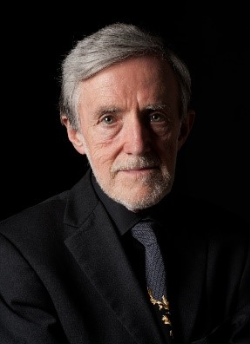
Dr. Edward Humphreys (Chartered Fellow of the BCS - FBCS CITP, CISM) has been a Senior Advisor in the field of information security and risk management for more than 41 years. During this time, he has undertaken professional advisory and counselling engagements for major international organizations as well as for governments and the European Commission, Council of Europe, and the OECD. He is also a leading academic in the field of cybersecurity research and a renowned ambassador in the field of international standardisation (1982 to present day).
Dr. Humphreys is the convenor of the ISO/IEC JTC 1/SC 27 working group on information security management system standards. He is internationally recognised and famous for being the "Father of the ISO/IEC 27001 family of information security management systems standards". He is also recognised for his work in championing the development, governance and promotion of ISO/IEC 27001 accredited certification around the world, which is providing the foundation of global cyberspace security and privacy norms. He is also the convenor of two SC 27 advisory groups – AG 7 (Communications and Outreach) which includes undertaking a gender diversity study on behalf of SC 27 and AG 8 (Conformity Assessment) that deals conformity assessment of SC 27 projects across all five of the working groups. He was also the organiser and chair of the conference SC 27 Women in Standards. He is also a member of the CASCO TIG and WG 30, and TMBG JTCG on management system standards.
His distinguished career has been awarded with many prestigious awards including the UK Wolfe-Barry Gold Medal for his outstanding leadership and contributions to international cyberspace standards and norms, and the IEC 1902 award.
Dr Humphreys has been is a visiting professor at various universities around the world in Europe and Asia for the last 30 years. He is the author of many books and his current areas of research include cyberspace governance, risk, security and privacy, and as well as risk psychology associated with cyberspace usage and applications.
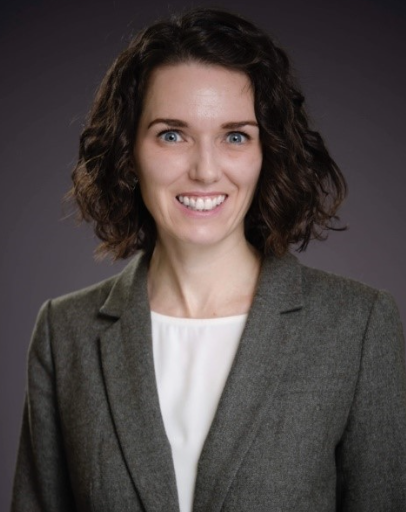
Michelle serves as Manager,Research at the Standards Council of Canada (SCC). She is responsible for leading research to demonstrate the economic and social value of standardization, and also leads the Standards Council of Canada’s gender strategy. She authored the research paper, When One Size Does Not Protect All: Understanding Why Gender Matters for Standardization, which demonstrates some of the consequences of the lack of gender-responsiveness in standards. Michelle is the Chair of the Team of Specialists on Gender-Responsive Standards at the United Nations Economic Commission for Europe. She is an active participant on the ISO/IEC Joint Strategic Advisory on Gender-Responsive Standards and a member of the IEC’s Diversity Advisory Committee. Michelle has a PhD in Experimental Psychology from McGill University and a BSc in Kinesiology & Health Sciences and Psychology from York University.
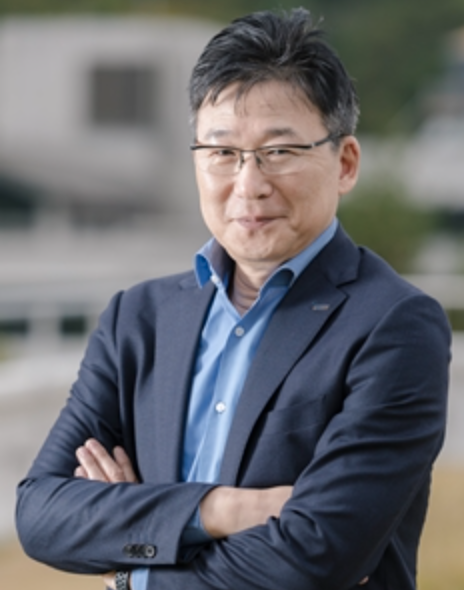
Dr. Hyoung Jun Kim began his career in 1988 at the Electronics and Telecommunications Research Institute (ETRI) where he currently holds the position of Research Fellow. Previously, he served as Senior Vice-President and led the Intelligent Convergence Research Lab at ETRI. Over the course of 35 years, Dr. Kim has gained research experience in a range of ETRI divisions, such as the Info-Communications Technology Division, IT Strategy Research Division, Information & Telecommunications Technology Division, and Protocol Engineering Centre. Presently , he also serves as the Chairman of both ITU-T SG20 and the APT Standardization Program (ASTAP) within the Asia-Pacific Telecommunity, and Vice Chairman of Network of Women in ITU-T. In the past, he has held roles as Vice-chair of SG20 and SG13, Rapporteur of Q25/16 since 2004, Vice-Chairman of the Focus Group on M2M Service Layers, Chairman of WP2 of the same Focus Group in ITU-T SG11, and Vice-Chairman of the Focus Group on Future Networks in ITU-T SG13. Dr. Kim's research and academic achievements are extensive, with over 450 standard proposals, more than 150 academic journal and conference papers, over 100 patents, and 20 official technology transfers to domestic companies under his belt. He has received two National President's citations in 2003 and 2009, in addition to numerous Certificates of Appreciation from international standard-related organizations, including ITU-T. Notably, Dr. Kim earned his second National President's Award at the "World Standards Day 2009 in Korea" in recognition of his dedication to international standardization.
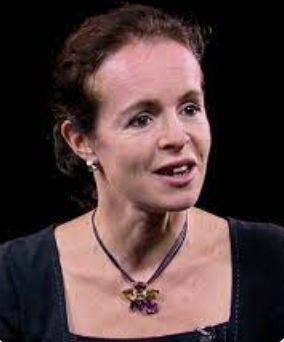.png?maxwidth=500)
Ms. Phillippa Biggs is an economist within the ITU’s Emerging Technologies Division. She holds a bachelor’s degree in Natural Sciences from the University of Cambridge, an accountancy qualification from the ICAEW and a master’s degree in economics for Development from the University of Oxford, for which she won the Oxford University Prize. Ms. Biggs has over twenty years of experience within the United Nations working with UNCTAD, UNIDO and most recently, ITU. She has authored various reports for ITU and the UN Broadband Commission. She researches and analyses economic trends in broadband and 5G markets around the world. She is a member of the ITU Gender Task Force whose objective is to ensure a coordinated implementation of the ITU Resolution on gender equality and empowerment of women through ICTs and to oversee the implementation of the ITU gender equality and mainstreaming policy.

Mr. Lance Thompson serves as Secretary/ Economic Affairs Officer to the Working Party on Regulatory Cooperation and Standardization Policies (WP.6). In this role, he actively seeks opportunities for cooperation between government agencies to reduce technical barriers to trade and ensure a smooth flow of cross-border movement of goods. He is engaged in all areas of the Working Party from market surveillance and risk management to education on standardization and gender-responsive standards. Prior to joining the United Nations in 2017, Mr. Thompson held positions in the private sector in the United States, France and Japan where he worked extensively with standards and cooperation with government bodies, especially customs agencies globally. He has also held key positions within the UN Centre for Trade Facilitation and Electronic Business (UN/CEFACT), the World Customs Organization’s Data Model Project Team and the French Trade Facilitation organization ODASCE. Mr. Thompson holds a doctorate degree in social anthropology and an MBA specializing in International Business both from the Sorbonne University where he graduated as valedictorian.

Within CEN-CENELEC, the European Committee for Standardization and the European Committee for Electrotechnical Standardization, Deborah Wautier is responsible for stakeholder engagement in European standardization, while closely liaising with the CEN and CENELEC Members. Since 2019, Ms. Wautier supports the inclusiveness, diversity & transparency of the system by leading projects to further enhance participation of European Partners, Civil Society, SMEs, and sectoral industry organizations, as well as developing and coordinating the CEN and CENELEC activities to bring a gender-responsive perspective in the European Standardization System.
Ms. Wautier’s educational background is in Applied Linguistics and has worked for the Council of European Municipalities and Regions as the Officer for Statutory Affairs and Service to Members.
-
 C2. Information and communication infrastructure
C2. Information and communication infrastructure
-
 C6. Enabling environment
C6. Enabling environment
-
 C11. International and regional cooperation
C11. International and regional cooperation
.
-
 Goal 5: Achieve gender equality and empower all women and girls
Goal 5: Achieve gender equality and empower all women and girls
-
 Goal 16: Promote just, peaceful and inclusive societies
Goal 16: Promote just, peaceful and inclusive societies
-
 Goal 17: Revitalize the global partnership for sustainable development
Goal 17: Revitalize the global partnership for sustainable development
SDG 5 - Achieve gender equality and empower all women and girls
SDG 9: Build resilient infrastructure, promote inclusive and sustainable industrialization and foster innovation
SDG 17: Partnerships for Goals
.